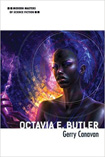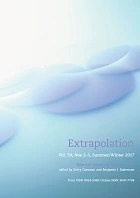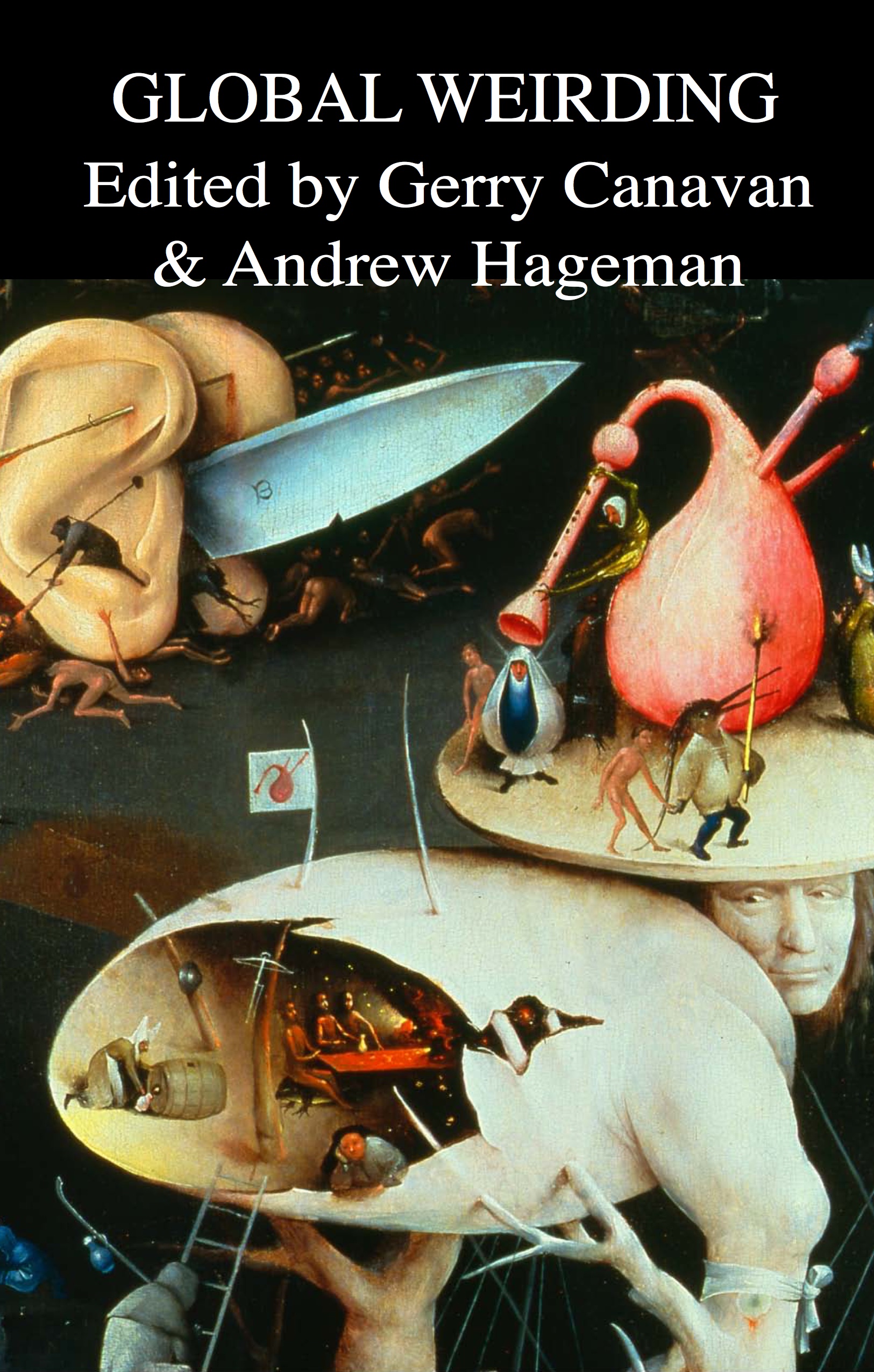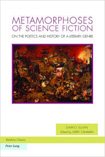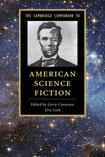Posts Tagged ‘Narcissa Malfoy’
Reading and Teaching Harry Potter after THE CURSED CHILD (No Spoilers, Just a Few Instant Reactions)
Zoey slept in this morning, so I was able to read the entirety of Harry Potter and the Cursed Child on my Kindle app under the covers, racing both an iPad battery that was very rapidly heading to zero and a four-year-old whose every tiny twitch and movement suggested the end of my project was drawing near. I think it’s good. It’s definitely strange. As a revisionary work, it throws some very odd wrinkles into the interior logic of the Harry Potter universe, and as a result I suspect it will always have a sort of quasi-authorative, even apocryphal status within the canon, even beyond what one would have suspected because of the unusual circumstances of its multi-author composition and its form as a play rather than a novel or even a film. It never feels quite real, never feels like the actual future of these people and these circumstances; it’s a tie-in book, oxymoronically authoritative fan fiction. Still, there are a few things here worth lingering on, and it’ll start a lot of conversations.
I know I’ve read the thing almost comically early, so perhaps I’ll do a follow-up post in a week or so with some actual spoiler-laden analysis about the events of the plot. But what struck me most as I was reading The Cursed Child is how directly it resonates with the way I’ve been teaching the series in my literature courses the last two years (a pedagogical focus undoubtedly driven by the fact that I’m a parent now myself). Like many other things in life, the original Harry Potter books look rather different after one becomes a parent, and living inside the franchise again I’ve really come to see it as in large part as a frustrated rumination on bad parents, and on bad fathers in particular.
The class I teach Harry Potter in is a foundations course for English majors, but the theme is “Magic and Literature”; we spend the last half on children’s literature and the last full month on Harry Potter, first talking about the franchise as a whole (with some exceptions, they nearly all know it by heart) and then (re-)reading the fifth book in the series, Harry Potter and the Order of the Phoenix, together. I choose Order of the Phoenix deliberately: the first three books are all still a little childish, and the fourth is mostly so until the shocking events at the end, which (after Cursed Child) now looks even more like the fulcrum of the entire series. (A surprisingly high number of students in the current college-age cohort had younger siblings who were initially not allowed to read past book three, and only came back to the series later, if at all, after a year or more break.) The sixth and seventh books are really plot-driven, almost to the exclusion of the world-building; you can’t really read one without reading both, and at that point you’re completely excluding any students who don’t already know the series extremely well. But the fifth book is in the sweet spot: it’s adult, in a way the earlier ones aren’t, and it opens up on the larger, darker Wizarding World while still being a stand-alone adventure. It’s also, perhaps it goes without saying, my personal favorite of the five, and I think the actual best writing of all seven — and it brings up some fascinating issues about the Wizarding World and its internal politics that aren’t really developed anywhere else.
We spend two weeks on Phoenix, and afterwards we talk a little bit about the epilogue to the last book, which (as every child knows) flashes forward nineteen years to the day Harry Potter’s second son, Albus Severus, goes to Hogwarts. We need the epilogue in the class because, in my teaching, it’s the culmination of the various explorations of bad parenting that structure Phoenix.
The discussion for the first day inevitably focuses on the scene with Molly Weasley (chapter nine, “The Woes of Mrs. Weasley”). Mrs. Weasley is a fascinating character from the perspective of the Harry-Potter-rereader-as-a-parent, as she is one of only a handful of genuinely “good” parents anywhere in the series: good in the sense that she sees her children (and Harry) as pearls beyond price and simply wants to love, nurture, and protect them, rather than instrumentalize them either in the service of her own ego (as with, say, Lucius Malfoy) or in the service of some larger, supposedly greater cause (as with Dumbledore).
(The character most like Molly in the series is, weirdly, Narcissa Malfoy, as my students in the first iteration of the class pointed out to me: Narcissa is the version of Molly who doesn’t take the word of the men for an answer and who is therefore able to get what she wants and protect her child at any cost, the Higher Cause be damned. That’s a not-insignificant plot detail for reading The Cursed Child.)
In chapter nine of The Order of the Phoenix we see Molly Weasley get excoriated by every other member of the original Order of the Phoenix for being weak, and being unwilling to see that war has come to the children (especially Harry, who is 15) and that they now must grow up and be soldiers instead. Molly says no, leave them out of it, they’re children, and gets shouted down. (In case we miss the point, Molly is then humiliated by the narrative by being unable to defeat a boogeyman parademon that the children had been taught to defeat with a simple spell two years before.) The remainder of the book and really the series as a whole is an exercise in further proving that Molly and those who think like her, like Hermione, are wrong (even though from a strict plot perspective Molly is in fact completely right and if the children had done nothing but just be kids everything in Book Five would have turned out fine). But within the logic of the original series it’s Molly who has to change; she only gets her redemptive moment in Book Seven when she is finally able to reconcile love to violence when she tells Bellatrix Lestrange “Not my daughter, you bitch” before murdering her.
Dumbledore explains at the end of Book Five that, in fact, his problem is that he loves Harry too much, and has been unwilling to fully weaponize him as the circumstances demand, treating him too much like a child — but now he will, reluctantly and with regret, bring Harry completely into the fold as his full lieutenant. (It’s only in Book Seven that we find out Dumbledore is still lying to Harry, even here, and that Dumbledore has always known he was raising Harry for the slaughter; even Snape, who himself has barely any conscience or pity, is horrified when he finds this out.) Both years teaching the course I’ve said at the end of the first day that my overall take on Dumbledore is that he seems to be a brilliant general, a middling-to-poor teacher, and an absolutely terrible father; no one agrees with me on day one, but by the end of the full lesson about half the class or more does. Dumbledore, like Gandalf, and like the Doctor, and like Obi-Wan, and like any other number of mentor wizards in the history of science fiction and fantasy we could name, abuses his protege and everyone else as his instrument in the name of a higher, nobler purpose — and if that’s painful, if that hurts, well, please know he’s sorry, it’s only because he loves you so very much.
The Dumbledore pseudo-apology scene that comes at the end of Book Five is important enough, central enough to the Potter mythos that it plays out again with one of Dumbledore’s portraits in The Cursed Child — only this time, Harry gets to talk back, and this time Dumbledore turns out to be definitely and definitively wrong.
This is why the books always needed the nineteen-years-later epilogue, despite all the many reasons it was a tremendously bad idea compositionally: what we see in the epilogue is that while Harry continues to admire the many men around him who seek to deploy him as their child-soldier, and even names his two sons after his four bad dads (James, who at least was bad mostly because he was dead; Sirius; Severus Snape; and Albus Dumbledore), he actually parents them like Molly Weasley. In the scene Albus is scared that he’ll be sorted into Slytherin, and wants reassurance from his dad that it won’t happen:
“Albus Severus,” Harry said quietly, so that nobody but Ginny could hear, and she was tactful enough to pretend to be waving to Rose, who was now on the train, “you were named for two headmasters of Hogwarts. One of them was a Slytherin and he was probably the bravest man I ever knew.”
“But just say — ”
“– then Slytherin House will have gained an excellent student, won’t it? It doesn’t matter to us, Al. But if if it matters to you, you’ll be able to choose Gryffindor over Slytherin. The Sorting Hat takes your choice into account.”
“Really?”
“It did for me,” said Harry.
He had never told any of this children that before, and he saw the wonder in Albus’s face when he said it.
The punchline of the whole Hogwarts adventure, in my reading, is that Harry’s reward is that he gets to be a father, and/but that he isn’t a father like Dumbledore, Sirius, or Lucius. He just loves his kid unconditionally, whoever he is or isn’t, no matter what, forever.
The play’s retelling of the Deathly Hallows epilogue in Act I, Scene II truncates this scene crucially by eliminating the bolded dialogue. (I haven’t seen it performed so I can’t be sure how it plays on stage, but the stage directions don’t indicate any special reaction from Albus to this information either.) It has to retcon out Harry’s choice to love his children like Molly and Narcissa so that he can spend the play learning that lesson instead. So instead of Harry the Good Dad, we spend most of The Cursed Child with Harry as actually a pretty bad one, who fundamentally misunderstands his role in his son’s life, so at the end he can reform and be returned to the place where the original epilogue had always left him anyway.
In that sense, I suppose, the plot of The Cursed Child writ large is itself a little bit like the bubble timeline of any classic time-travel story, existing temporarily to dissipate in the face of reconciliation with the place we already were all along. But that reconciliation is an interesting thing; even reconciled, we can’t read the earlier books in quite the same way, because after The Cursed Child even Rowling won’t let Dumbledore off his hook. The story The Cursed Child tells in the foreground is ultimately the one the Harry Potter series was always telling in the background: how easy it is to be a bad parent, and how easy it would be to be a good one, if only you were stronger.


